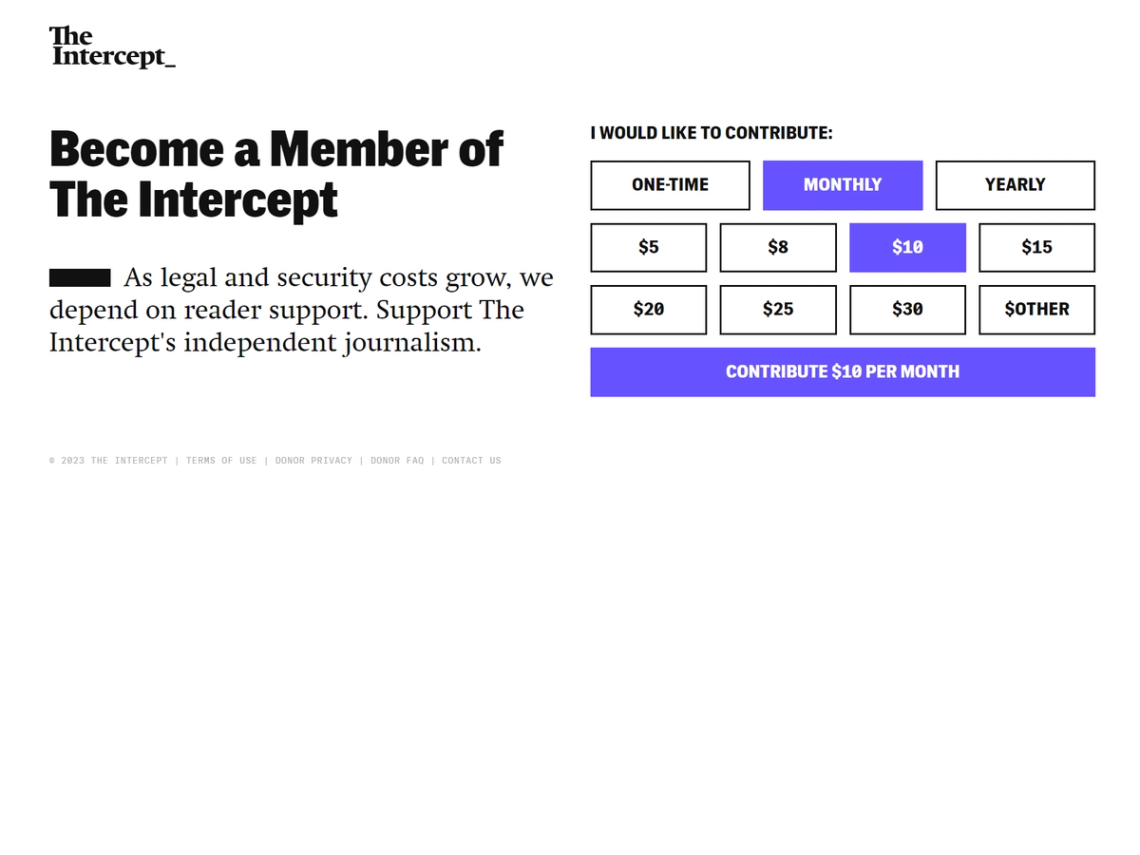 ⁛ NewsNew regime: Washington Post editor-in-chief Sally Buzbee has resigned, to be replaced in part by former WSJ editor Matt Murray — as an editorially-minded publisher, Will Lewis, takes charge.  Not Today: A Mississippi judge is ordering the nonprofit news organization Mississippi Today to turn over reporting notes and documents related to its Pulitzer Prize-winning investigation of a state welfare scandal. In 2022, Mississippi Today revealed how former Gov. Phil Bryant steered millions of federal welfare dollars to benefit his family and friends, most notably NFL quarterback Brett Favre. Last year, Bryant sued the publication for defamation over its description of its reporting — not the reporting itself. While his lawsuit didn’t appear to challenge the facts in Mississippi Today’s series, Bryant’s team said that the organization’s CEO and other employees made defamatory statements about him when discussing the story in public. “Governor Bryant believes he has been libeled by Mississippi Today,” a Bryant spokesperson told The Associated Press last year. “He is confident in the suit he has brought and, through his attorneys, will convince 12 residents of Madison County of just that.” In a ruling last month, Madison County Circuit Judge Bradley Mills ordered the publication to turn over all of its reporting documents by June 6. The ruling has alarmed staff at Mississippi Today, which appealed the decision to the state supreme court. In a statement to Semafor, editor-in-chief Adam Ganucheau said that the judge’s order was unconstitutional, and if the paper turns over its notes, future whistleblowers could be reluctant to expose wrongdoing. “There has been no evidence presented to demonstrate our reporting was false, because it wasn’t. There has been no evidence presented that our reporting was defamatory, because it wasn’t. There has been no evidence presented that we relied on an unreliable source, because we didn’t. For those reasons, we should not be compelled to turn over privileged information,” Ganucheau said. He continued: “Using a meritless lawsuit as a vehicle to obtain unfettered access to a news organization’s notes and communications with sources totally disregards the U.S. Constitution and would severely damage the public’s ability to learn about how their leaders behave. We stand by every word of our reporting, and we are confident we will prevail in our defense. Toward that end, we are obligated to appeal this order not only to protect ourselves and a free press, but also to uphold the rights guaranteed to all Mississippians by the Constitution.” China on offense: “No other delegation has briefed as many reporters as frequently as the Chinese,” the Straits Times reports from a conference in Singapore. ✦ Marketing REUTERS/Jonathan Ernst/File Photo REUTERS/Jonathan Ernst/File PhotoBig bucks: The debate between Joe Biden and Donald Trump looks like it could be one of the most lucrative nights of the year for news networks. Semafor reported on Friday that CNN was offering two ad tiers to potential advertisers (though not PACs or campaigns; the network has limited political ad spending to before and after the debate, but will not allow either to buy airtime during the contest). The top tier is a $1.5 million minimum advertising buy with all of the network’s premium features, including a branded countdown clock, advertiser on-air billboards, co-branded tune-in promotions, ads on Max and a takeover of the CNN Politics section on its digital site, plus three 30-second televised ad slots (pre-debate, during, and after). For a mere $1 million, several more advertisers can buy into the next-best tier, which includes the three ads but fewer digital offerings. ⁋ Publishing Interception: Staff at the Intercept are imploring the nonprofit’s board to fire its CEO and chief strategy officer amid a dispute that involves allegations of gender bias, the likely departure of two top staffers, and the failure to secure a major donor who expressed interest in funding the news site. In April, Semafor published a story noting that the proudly progressive news organization was on track to run out of money by sometime early next year, and that two of its top journalists, co-founder Jeremy Scahill and Washington bureau chief Ryan Grim, had unsuccessfully petitioned the Intercept’s board to take over the organization themselves. Since the story was published, internal tensions have stretched the organization to the breaking point, particularly over issues related to fundraising and spending. Following Semafor’s report, the Intercept was approached by what multiple sources described as a high-level donor who expressed interest in making a significant contribution to help keep the publication afloat. Unmixed Signals: The Daily Signal is spinning out from the conservative Heritage Foundation to build an independent news organization focused on investigative journalism, Capitol Hill and the states, and “smart political commentary from policy experts and influential leaders who understand what time it is in America,” Rob Bluey, the publication’s executive editor and founding editor-in-chief, and the new organization’s president, told Semafor. They’ll launch with about 17 journalists. The publication was founded back in the blogging days to bolster a right-wing media ecosystem that was, then as now, short on original reporting. Heritage president Kevin Roberts, a combative pro-Trump voice, said “the American people deserve a news outlet that covers the news fairly and accurately” that “investigates stories and asks tough questions no other legacy media outlet will ask.” The new organization, whose structure mirrors that of the Daily Caller and National Review, includes a nonprofit Daily Signal Institute whose work can be published elsewhere, as well as a for-profit media group. Substack, for politics: There’s a “politics explosion on Substack,” co-founder Hamish McKenzie told us. New additions include former Trump aide Sean Spicer, who’s doing a video podcast on the platform; the podcaster Sharon McMahon, who recently interviewed Vice President Kamala Harris; and the podcaster and social media refugee Sam Harris. “Politics is the biggest revenue category on Substack, and these latest moves reflect our dedication to providing the best space for political discourse, which other platforms are either abandoning or coarsening,” McKenzie said in an email. ⁜ TechPassword reset: A hacker broke into CNN’s TikTok account last week, forcing the news organization to take the account down for several days. A network spokesperson told Semafor in the wake of the hack that CNN was “working with TikTok on the backend on additional cybersecurity measures” to ensure that the account will be safe during the presidential debate and other events. Several CNN staffers said the organization had grown lax with some of its digital safety practices. According to one CNN staffer, before this weekend, dozens of CNN employees had access to the TikTok. But another network source clarified that the breach did not appear to be the result of someone gaining access from CNN’s end. Sounds familiar? In a new podcast, Reflector revisits the 1980s debate over the link between teen suicide and explicit music lyrics. The whole thing sounds incredibly familiar, up to and including Tipper Gore! | 








